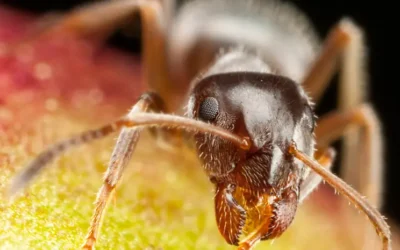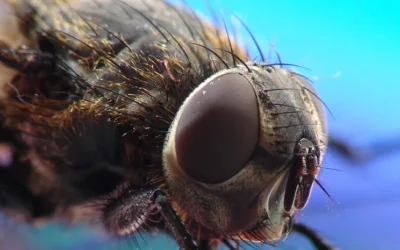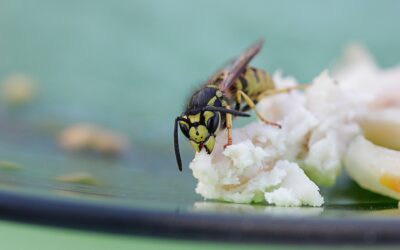Summer means barbecues, lazy afternoons on a deck chair, and garden get-togethers. Unfortunately, it also brings some uninvited guests: mosquitoes, blackflies, wasps, hornets, ticks, and horseflies. Some are just annoying, while others can pose real health risks. Why are they so eager to bite us—and how can we protect ourselves effectively?
Why do mosquitoes bite us?
Although we often say that “mosquitoes bite,” it’s actually only the females that pierce the skin—they need the protein from blood to produce their eggs.
That’s why evenings and nights in the garden are often filled with buzzing and itchy bumps. What attracts mosquitoes to us the most is:
- the carbon dioxide we exhale,
- body heat and the scent of sweat (especially lactic acid),
- and even the color of our clothes—dark colors draw them more than light ones.
In Poland, there are around 47 mosquito species, and a few of them have developed a particular taste for human blood.
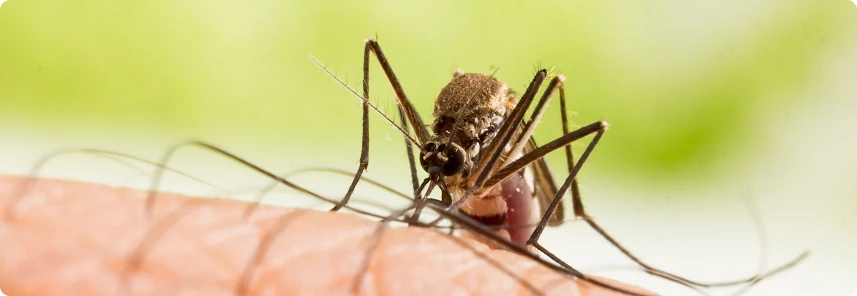
Blackflies – small but incredibly annoying
Don’t let their tiny size fool you—blackflies can bite harder than mosquitoes. Their bites often leave behind itchy, painful swellings that can last for several days.
They are most likely to attack in areas near rivers, ponds, and other damp environments.
Wasps, bees, and hornets – stings in self-defense
Not all insects bite or sting to feed—wasps, bees, and hornets do it to defend themselves.
- Bees sting once—and die.
- Wasps and hornets can sting multiple times.
According to data from the National Health Fund (NFZ), every year several thousand of Poles are hospitalized due to stings from Hymenoptera insects. For most people, the reaction is limited to pain and swelling, but those who are allergic are at risk of a dangerous anaphylactic shock.
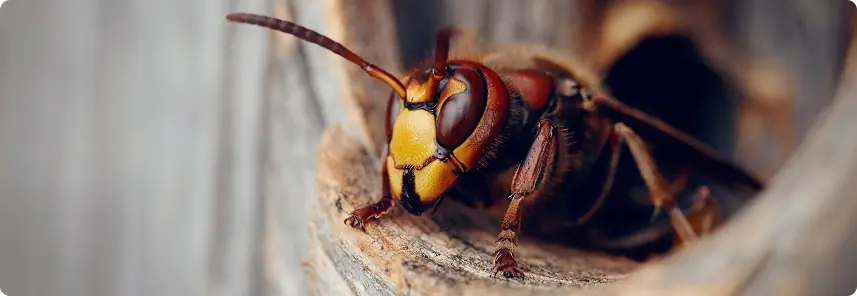
Ticks – Hidden Intruders
Although they are mostly associated with forests, ticks are increasingly found in home gardens and city parks. They dwell in grass and shrubs, and their bites can transmit Lyme disease or tick-borne encephalitis. The tick season lasts from spring through late autumn.
Ants in the Garden – Helpful but Sometimes Troublesome
While ants can be beneficial, they are often a nuisance in gardens. Most ants are harmless and even helpful – they aerate the soil and clean up organic debris.
The problem arises when species such as black garden ants (Lasius niger) settle in the garden – they can bite painfully and build large colonies in lawns or garden structures, making the garden harder to maintain and less comfortable to use.
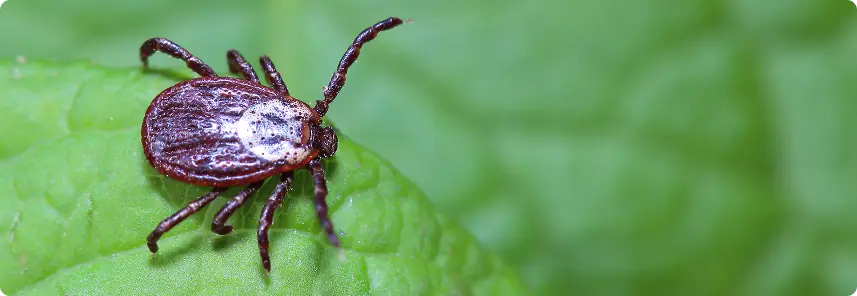
Horseflies – the pesky flies that really make life difficult.
Horseflies are a nuisance not only to animals but also to humans. Their bites are extremely painful – the insect cuts the skin, leaving a bleeding and itchy wound. What’s worse, horseflies are persistent and can transmit dangerous microorganism.
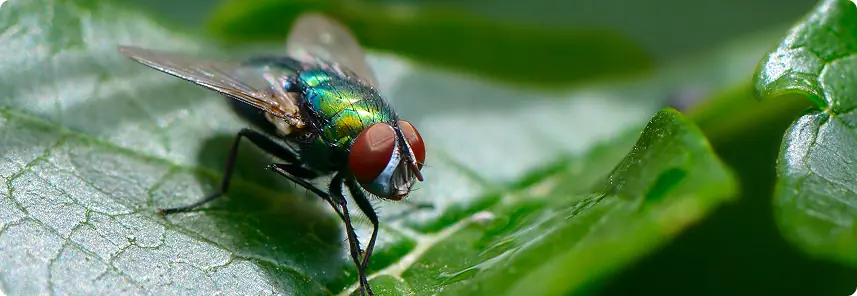
Flies – they don’t bite, but they’re a nuisance
In summer, flies are everywhere. They don’t bite, but they disrupt meals and can carry bacteria, as they land on both food and waste. This makes them a real hygiene concern.
How to protect yourself from insects in the garden?
Protection methods should be tailored to the type of insect:
- Mosquitoes and blackflies – use repellents, mosquito nets, and insect-repelling plants (lavender, mint,catnip); avoid being outdoors at dusk.
- Wasps and hornets – cover food and drinks, avoid provoking the insects. If a nest is discovered, seek professional help. Monitoring traps, such as the WASP & FLY TRAP, are also effective.
- Horseflies – wear clothing that covers the body and use repellents for biting insects.
- Ticks – wear long clothing and a hat, and thoroughly check your skin after returning from the garden.
- Ants and flies – keep the garden tidy, secure trash bins, and use natural scent barriers (cloves, vinegar, cinnamon).
Insects are an essential part of the ecosystem – they pollinate plants and help control other species’ populations.
But in our gardens, they can quickly turn relaxation into a bothersome battle. That’s why it’s worth understanding their habits and using proven methods – from natural repellents to professional traps. This way, summer in the garden can stay full of joy, instead of iritating “guests.”
